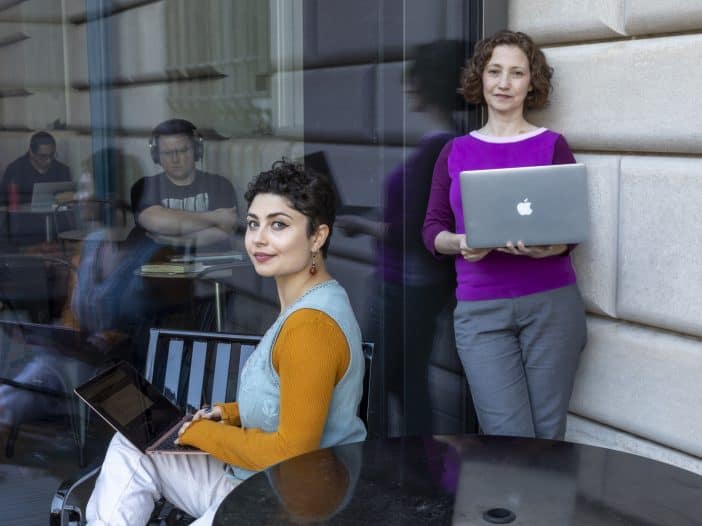
“jGirls+ allowed me to claim creativity and expression as part of my identity.”
— Aliza Abusch-Magder, a junior at Columbia University
She remembers being in Jewish summer camp and writing an opinion piece about an issue of religious observance there. “It was horrible, I was 14,” she says.
But it defined her as a young teen anxious to express a point of view through her own gender lens. That’s not so surprising, considering that Aliza Abusch-Magder is the daughter of two progressive Jewish educators who encouraged her to find her voice and a place for it.
As a sophomore in high school in 2016, she found that place. jGirls+ Magazine was in its start-up phases and Aliza became a contributor and a member of its first editorial board — helping to launch jGirls+ as a digital magazine by and for an entire generation of self-identifying Jewish female and non-binary teens. jGirls+ is a GPF grantee.
“It was a formative experience for me,” says Aliza, now a junior at Columbia University in New York, studying English and Gender and Women’s Studies. “There wasn’t a dedicated platform for young Jewish women and non-binary folx to express themselves and to be taken seriously. We were going to change that.”
jGirls+ is the brainchild of Elizabeth Mandel — its Founder and Executive Director. She was informed by her experience as a documentary filmmaker, writer and community activist in the gender equity and Jewish communal spaces as she identified a void and sought to fill it by giving Jewish teen girls room and validation.
“I envisioned a project that told girls, we want you, we value your voices, we believe in what you have to say, you matter,” Elizabeth says.
Since its founding, jGirls+ has grown in reach and form. In September, for instance, Elizabeth announced the publication of Salt and Honey: Jewish Teens on Feminism, Creativity and Tradition. It is a book featuring 78 works by 62 jGirls+ contributors, including Aliza, voicing “their celebrations and challenges, their anger and their eagerness in essays, poetry, and visual art.”
Although she has now aged out of jGirls+’s cohort of editors and contributors, Aliza continues her involvement through the Jewish Feminist Alumnae Network, a collaboration between jGirls+ and the Jewish Women’s Archive’s Rising Voices Fellowship.
“jGirls+ allowed me to claim creativity and expression as part of my identity,” Aliza says. “I have a fundamental core belief to engage in the world and I want to contribute in a positive way. That is an implicit part of what jGirls+ is all about.”





